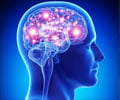Highlights:
- Insights into mechanism of lowering temperature in specific areas of the brain that could possibly treat epilepsy.
- Focal cooling is a procedure where a device is implanted in a specific part of the brain to reduce electrical signals.
- A rat brain model with epileptic condition was used to study the different mechanisms underlying effects of focal cooling.
Brain Cooling Treatment for Epilepsy
Most epileptic seizures occur in a limited area called the epileptic focus. Focal cooling is a mechanism where a device is implanted in the epileptic focus or focal area to suppress the abnormal electrical activity in the brain.Although focal cooling is not a novel idea of treatment, the approach has only been performed successfully in animal models like rodents Although medications are available to treat symptoms of epilepsy, there are up to 35% of patients that cannot effectively control seizures, even with such assistance. The only other alternative for them is surgery, to remove the epileptic focus area of the brain, which can be risky. Focal cooling if approved for clinical use could eliminate the need for surgery altogether.
Objective of the Study
Focal cooling has shown consistent success in rat epileptic brain models. However, sometimes focal cooling increases the electrical activity in the brain while suppressing the strength. The recent study conducted at Nara Institute of Science and Technology (NAIST), Japan, has gained insights into the focal cooling mechanism using computer simulation techniques.The Study
The research team used data from laboratory and previous rat studies to first simulate a mechanism in which the focal cooling reduces activity at neural synapses, thereby reducing electrical signals. But this alone did not reproduce signal patterns observed in previous focal cooling experiments in rats. Following which a second mechanism in which cooling resulted in consistent signals but with lower strength was simulated. A combination of both mechanisms reproduced results from previous experiments."Focal brain cooling could be an alternative treatment for epileptic seizures with lower risk of irreversible functional loss compared to surgery," says study co-author Takatomi Kubo. "Our study attempts to start an initiative on thermal neuromodulation of brain activity using a computational approach that can elucidate its mechanism and complement animal experiments and clinical tests."
References:
- Cooling Brains to Treat Epilepsy - (https://www.iths.org/blog/news/cooling-brains-to-treat-epilepsy/)
- Overview Epilepsy - (http://www.mayoclinic.org/diseases-conditions/epilepsy/symptoms-causes/syc-20350093)















